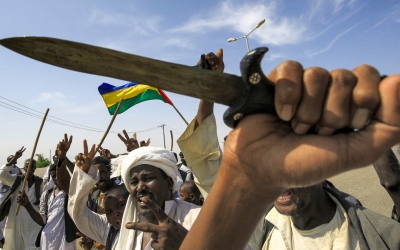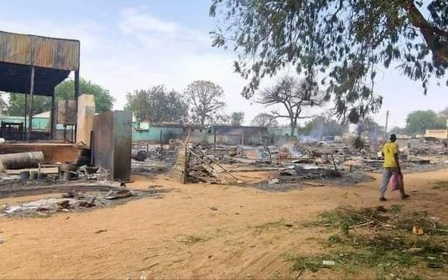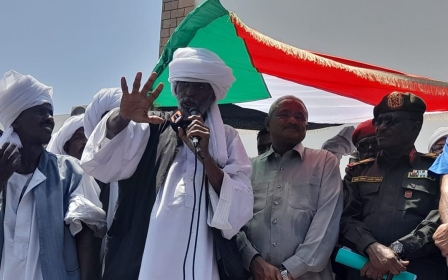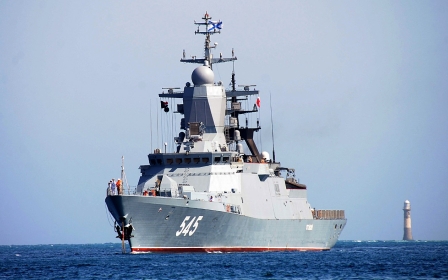Port Sudan: Army and Beja fighters face off in Burhan stronghold
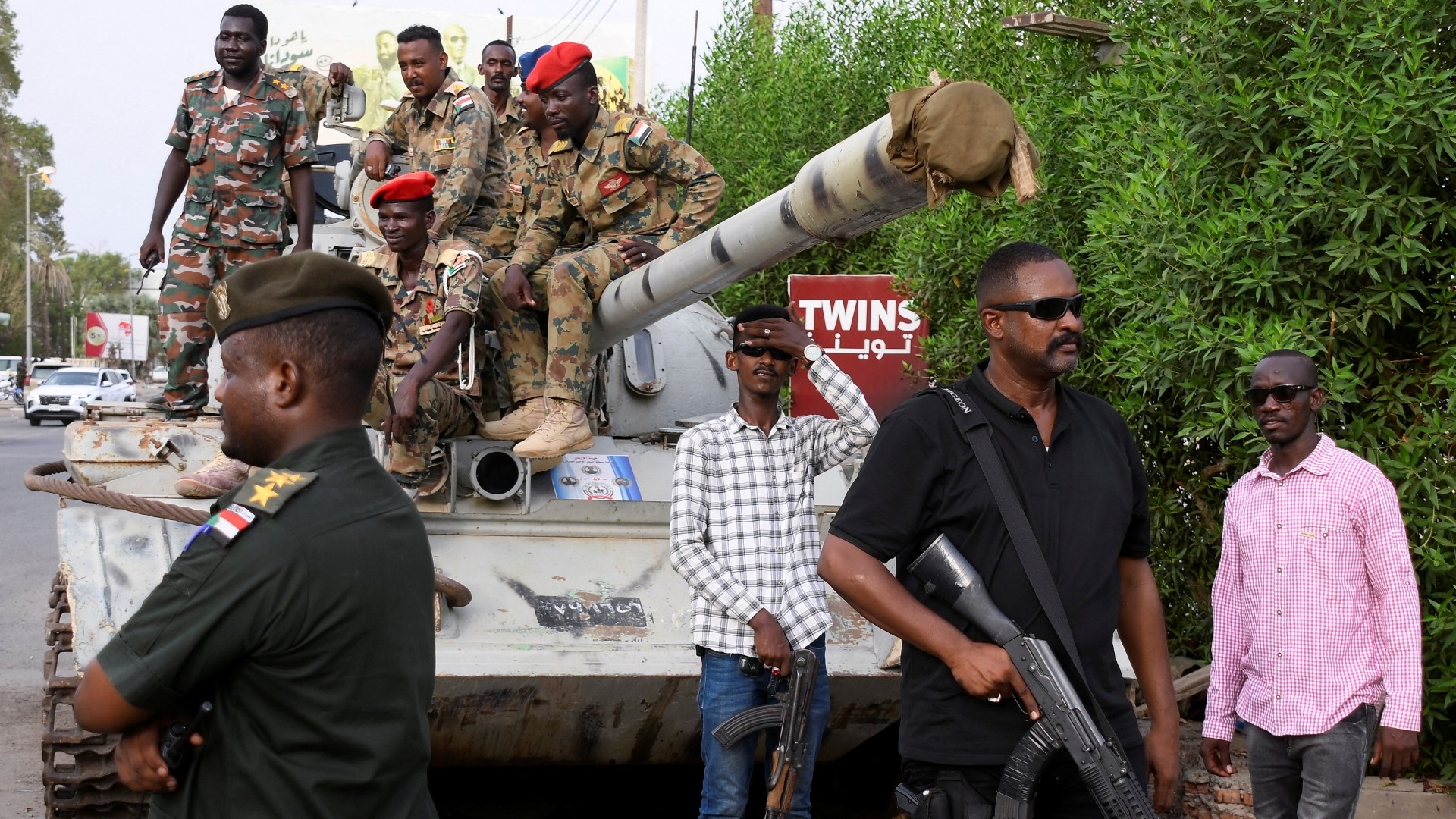
Clashes broke out in Port Sudan between the Sudanese military and fighters from the local Beja community on Monday night, sowing fear and confusion in the army’s eastern stronghold.
Witnesses told Middle East Eye that soldiers and civilians were wounded in the fighting, which had abated by Tuesday morning and was sparked by militiamen blocking aid convoys.
The violence was the first of its kind since 17 April, when the Sudanese Armed Forces (SAF) seized a military base from the paramilitary Rapid Support Forces two days after the war between the two broke out.
Since then, Port Sudan has been a relative oasis of calm as Sudan’s war has raged elsewhere – particularly Khartoum and Darfur. The majority of Sudan’s military leadership and most of the military junta government have been operating in the Red Sea city after the capital was enveloped in violence.
Last month, General Abdel-Fattah al-Burhan, head of the military, escaped Khartoum for Port Sudan, which he now uses as his base of operations. It is widely believed that Burhan is planning to soon name a war cabinet in Port Sudan, making the city, which already serves as a logistics and aid artery, even more strategic. Before the war, 90 percent of goods passed through Port Sudan.
New MEE newsletter: Jerusalem Dispatch
Sign up to get the latest insights and analysis on Israel-Palestine, alongside Turkey Unpacked and other MEE newsletters
Mohamed Hamdan Dagalo, the RSF leader better known as Hemeti, has warned that his forces will launch attacks on Port Sudan if a new government is formed in the city.
But on Monday, it was fighters led by local Beja leader Driar Ahmed Dirar, also known as Shaiba Dirar, who clashed with Burhan’s soldiers there.
According to witnesses, the clashes erupted in the evening in and around the headquarters of Dirar’s Beja Congress, an armed faction made up of fighters belonging to the eastern Sudanese ethnic community.
“It was a moment of panic when the SAF unit and the tribal militia exchanged fire in the city,” Port Sudan resident Abdul Alaal Mohamed told MEE.
Another witness said Beja Congress fighters blocked roads and set up checkpoints on Monday evening, but they had now been cleared.
“The situation is still tense in the city after the army removed the militia checkpoints and deployed SAF checkpoints,” he said, adding that many soldiers had been deployed around the Beja Congress headquarters in the Daim Madina neighbourhood.
Conflicting accounts
A source close to the Sudanese army said the clashes broke out when Beja Congress fighters blocked roads and attacked a convoy of aid trucks that were destined for conflict-hit parts of the country, including Khartoum and Darfur.
The source, who asked for anonymity because he is not authorised to talk to the media, told MEE that Dirar was detained after the fighting broke out and was later released.
He stressed that the clashes were unrelated to the wider Sudanese conflict, and should not be taken in context of Hemeti’s recent warning that Port Sudan was not safe.
An aid worker in the city, who wanted to remain anonymous for security reasons, said the incident was actually sparked by a simple traffic incident when aid trucks were parked near the Beja Congress headquarters.
He said things were largely back to normal, though aid workers and foreigners had been advised to remain indoors.
Following his release, a video of Dirar denying he had been detained was circulated on social media, in which he also claimed that his fighters had repulsed a Sudanese army assault.
Addressing his supporters, Dirar accused the military intelligence of attacking them without clear reasons.
“We have stopped these cars as they are suspected to be smuggling some goods without permissions. We gave the cars to the traffic police and we believed that the story had ended at that point. We did a good thing by stopping these smuggling vehicles and handing them over to the police. However, the military intelligence suddenly attacked us,” he said.
“The military intelligence attack was large scale with around 50 military vehicles that surrounded our headquarters in an attempt to scare us. But you know we have heroes here, so we succeeded in repulsing them and we remain unmoved as we are convinced that we didn’t do anything wrong.”
Controversial leader
Shaiba Dirar has a history of confrontations with serious consequences. In 2021, he forced the port closed, paving the way for the military coup that October led by Burhan and Hemeti against the civilian government of Abdallah Hamdok.
In May, Dirar led a march voicing support for the army and urging the expulsion of UN special envoy Volker Perthes, who was later made persona non grata by the Sudanese army and recently stepped down.
In an exclusive interview in his Port Sudan office in January, Dirar denied to MEE that he was a militia leader, and insisted that he was independent and never received support from the government of deposed autocrat Omar al-Bashir, the army or the RSF.
He described himself as a freedom fighter who wants to liberate eastern Sudan and his Beja community from what he described as decades of marginalisation.
Yet the ease with which Dirar and his Beja fighters operate in Sudan has led many to suspect he draws his power from support given by both the army and the RSF.
“We have our military camps for our forces at the border between Sudan and Eritrea, in the areas of Talkook and other places around, and we have our military training areas in the mountains, far from the eyes of the authorities,” Shaiba told MEE in January.
“We have thousands of forces from the former army of the Beja Congress party and others who joined us for different reasons - particularly because of feelings of unfairness, of the discrimination and inequality against the people of eastern Sudan.”
Middle East Eye delivers independent and unrivalled coverage and analysis of the Middle East, North Africa and beyond. To learn more about republishing this content and the associated fees, please fill out this form. More about MEE can be found here.


